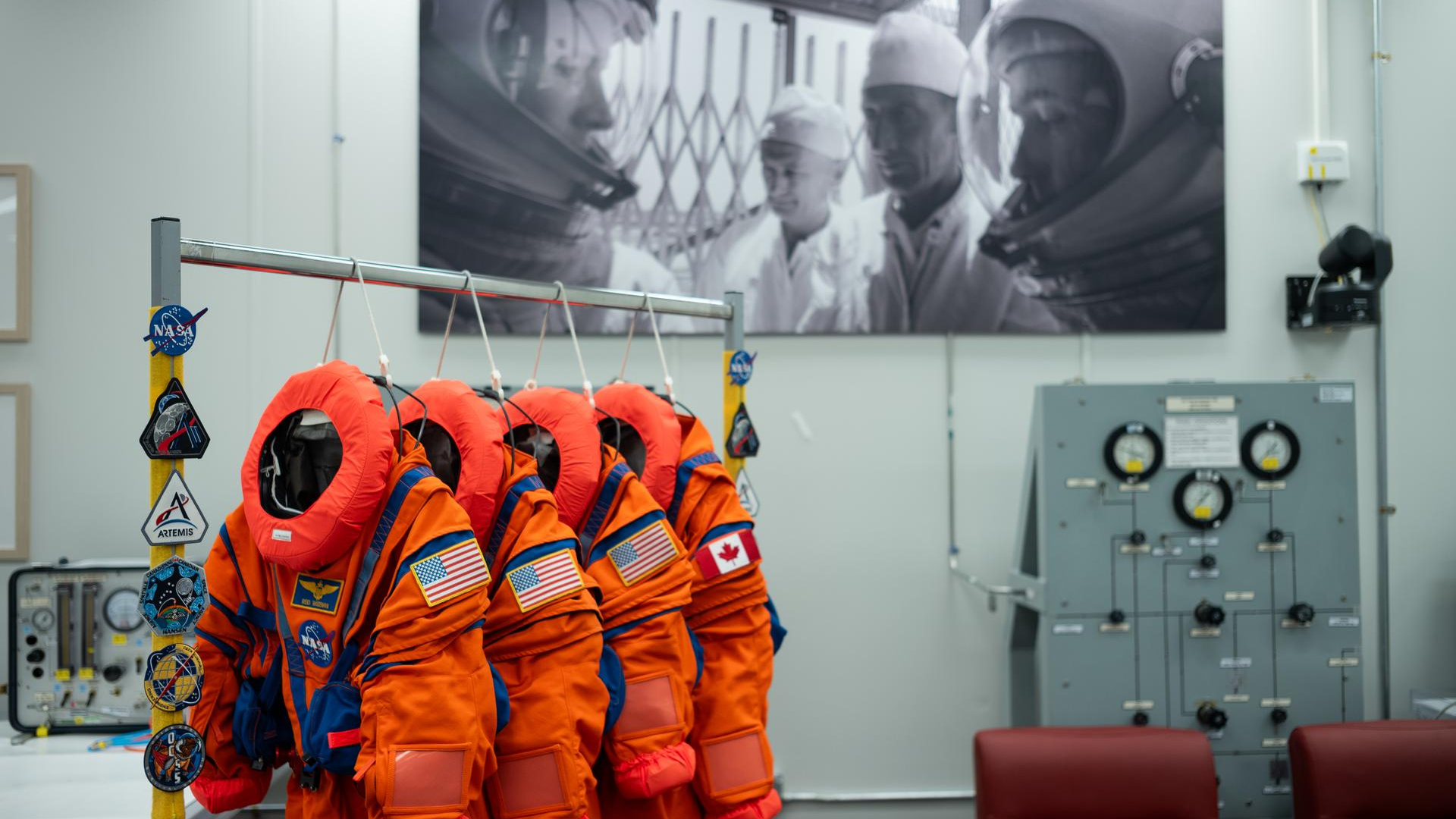What time is Blue Origin's New Shepard launch with GMA host Michael Strahan?
Liftoff time on Saturday (Dec. 11) is subject to technical matters and weather.
Editor's note: Liftoff of Blue Origin's New Shepard NS-19 space tourist flight is set for 10:01 a.m. EST (1501 GMT). Live updates
Blue Origin's third crewed mission, which will send Good Morning America anchor Michael Strahan and five other people to suborbital space, is expected to launch early Saturday morning (Dec. 11).
Liftoff is expected from Blue Origin's Launch Site One at 9:45 a.m. EDT (8:45 a.m. local time or 1445 GMT), but that is subject to change due to weather or technical issues with the New Shepard vehicle or other systems.
Live updates: Michael Strahan's Blue Origin Launch on New Shepard
Blue Origin will start its coverage at 8:15 a.m. EDT (1215 GMT) at BlueOrigin.com. We'll simulcast here at Space.com, if possible. The company also plans mission updates through @BlueOrigin on Twitter.
Six people will fill the seats of New Shepard this time, marking the first time the spacecraft is at capacity. The starring guest, Strahan, is also a retired football player, having been a defensive end for the New York Giants for 15 seasons. Below is a list of the other people planning to reach suborbital space on the mission.
More: Blue Origin's launch with GMA anchor Michael Strahan explained
Breaking space news, the latest updates on rocket launches, skywatching events and more!
- Laura Shepard Churchley, 74, the eldest daughter of NASA astronaut Alan Shepard. Shepard was the first NASA astronaut to fly in space, and the New Shepard spacecraft is named after him.
- Dylan Taylor, 51, chairman and CEO of the space exploration firm Voyager Space, founder of the nonprofit Space for Humanity, and co-founding patron of the Commercial Spaceflight Federation.
- Evan Dick, age not disclosed, an engineer and investor who is a volunteer pilot for Starfighters Aerospace.
- Lane Bess, age not disclosed, principal and founder of a technology-focused venture fund called Bess Ventures and Advisory.
- Cameron Bess, age not disclosed, who is a child of Lane. They stream variety content on Twitch under the alias MeepsKitten.
Once the launch gets going, it will be a short mission; Blue Origin flights typically last about 11 minutes from launch to landing. After launch, key milestones to watch for are when the rocket comes back to land autonomously at the launch site, and when the crew members descend for landing under a parachute after spending two or three minutes in microgravity.
Most of Blue Origin's 18 flights to date have been uncrewed, but the company is seeking to ramp up paid opportunities now for paying tourists or for folks who want to run experiments or fly payloads in space. Blue Origin has not yet disclosed a price for their flights; competitor Virgin Galactic is currently selling seats aboard its suborbital space plane for $450,000 apiece.
Follow Elizabeth Howell on Twitter @howellspace. Follow us on Twitter @Spacedotcom or on Facebook.

Elizabeth Howell (she/her), Ph.D., was a staff writer in the spaceflight channel between 2022 and 2024 specializing in Canadian space news. She was contributing writer for Space.com for 10 years from 2012 to 2024. Elizabeth's reporting includes multiple exclusives with the White House, leading world coverage about a lost-and-found space tomato on the International Space Station, witnessing five human spaceflight launches on two continents, flying parabolic, working inside a spacesuit, and participating in a simulated Mars mission. Her latest book, "Why Am I Taller?" (ECW Press, 2022) is co-written with astronaut Dave Williams.
